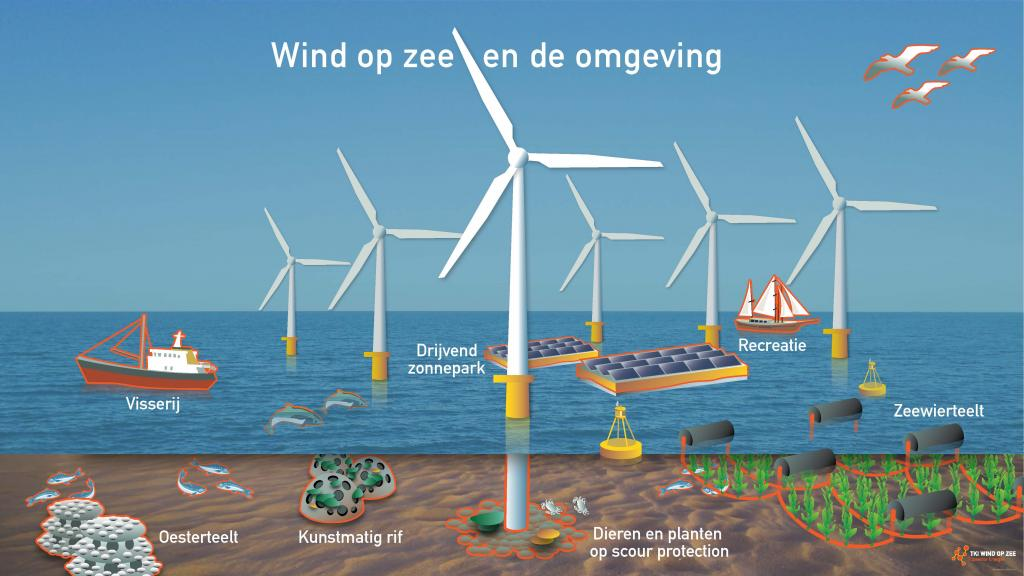 Offshore innovations are necessary to combine all functions in the North Sea in a smart, safe and sustainable manner. The North Sea is contributing increasingly to the food, climate and energy transition. The sustainable spatial planning of the North Sea is a complex task that is coordinated by the national government.
Offshore innovations are necessary to combine all functions in the North Sea in a smart, safe and sustainable manner. The North Sea is contributing increasingly to the food, climate and energy transition. The sustainable spatial planning of the North Sea is a complex task that is coordinated by the national government.
Some functions must remain separate for safety reasons, while others can be combined within the same square kilometre. We call this multiple use or multi-use.
Multiple use refers to the smart combination of different activities and functions at a specific location, with the aim of maximising benefits and minimising conflicts and negative effects.
In the case of Campus@Sea, multi-use focuses on integrating various activities in the North Sea, such as renewable energy generation, food production, nature conservation and development, safety & security and water sports, in order to promote sustainable and efficient use of the sea.
Multi-use combines the advantages of different activities, reducing conflicts and promoting economic, ecological and social sustainability.
In short, multiple use is essential to meet the growing demand for natural resources while ensuring ecological sustainability in the increasingly busy North Sea and other seas.
Examples of multiple uses


